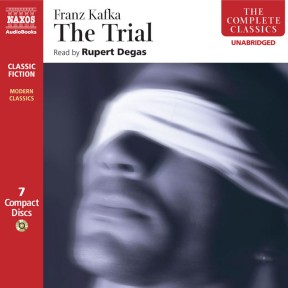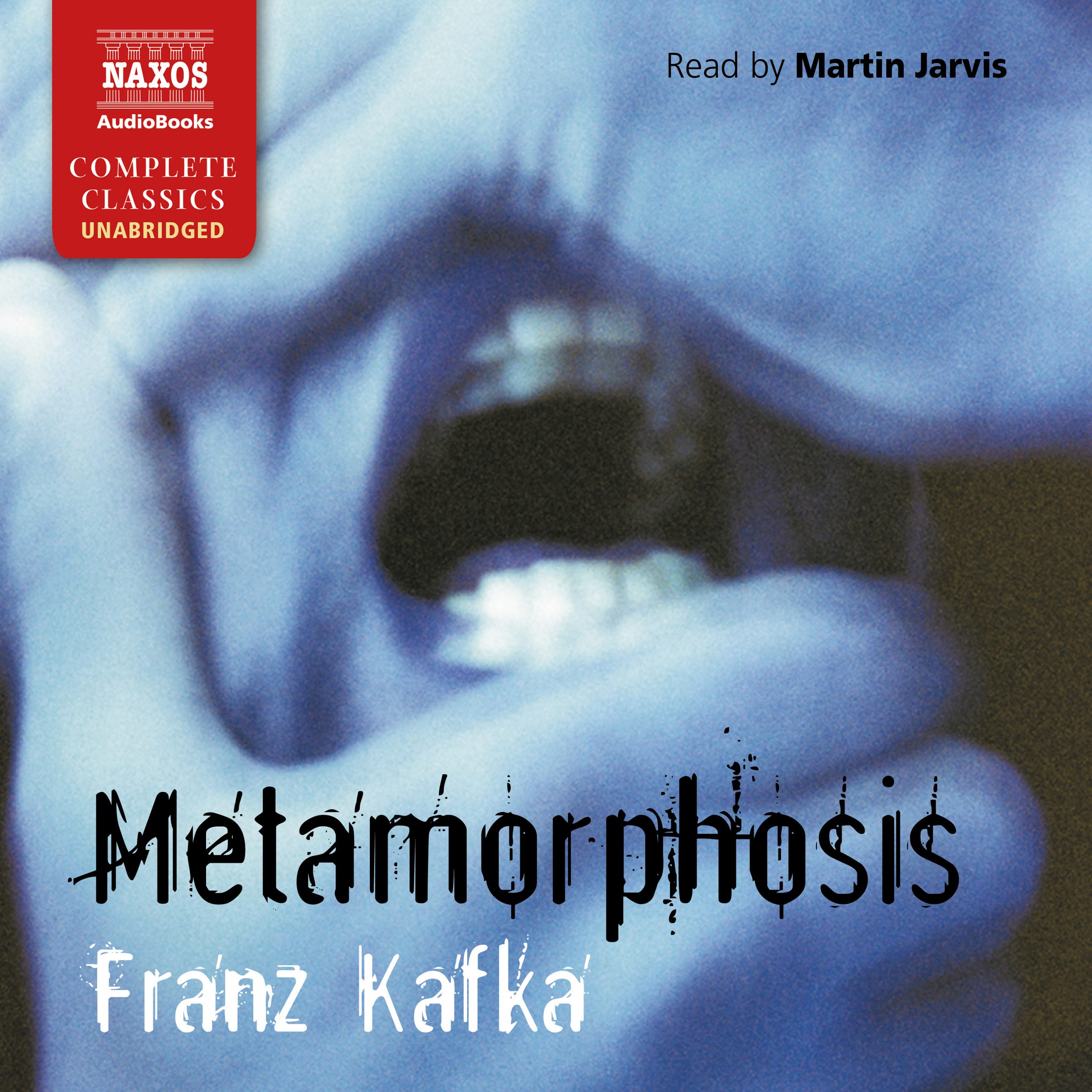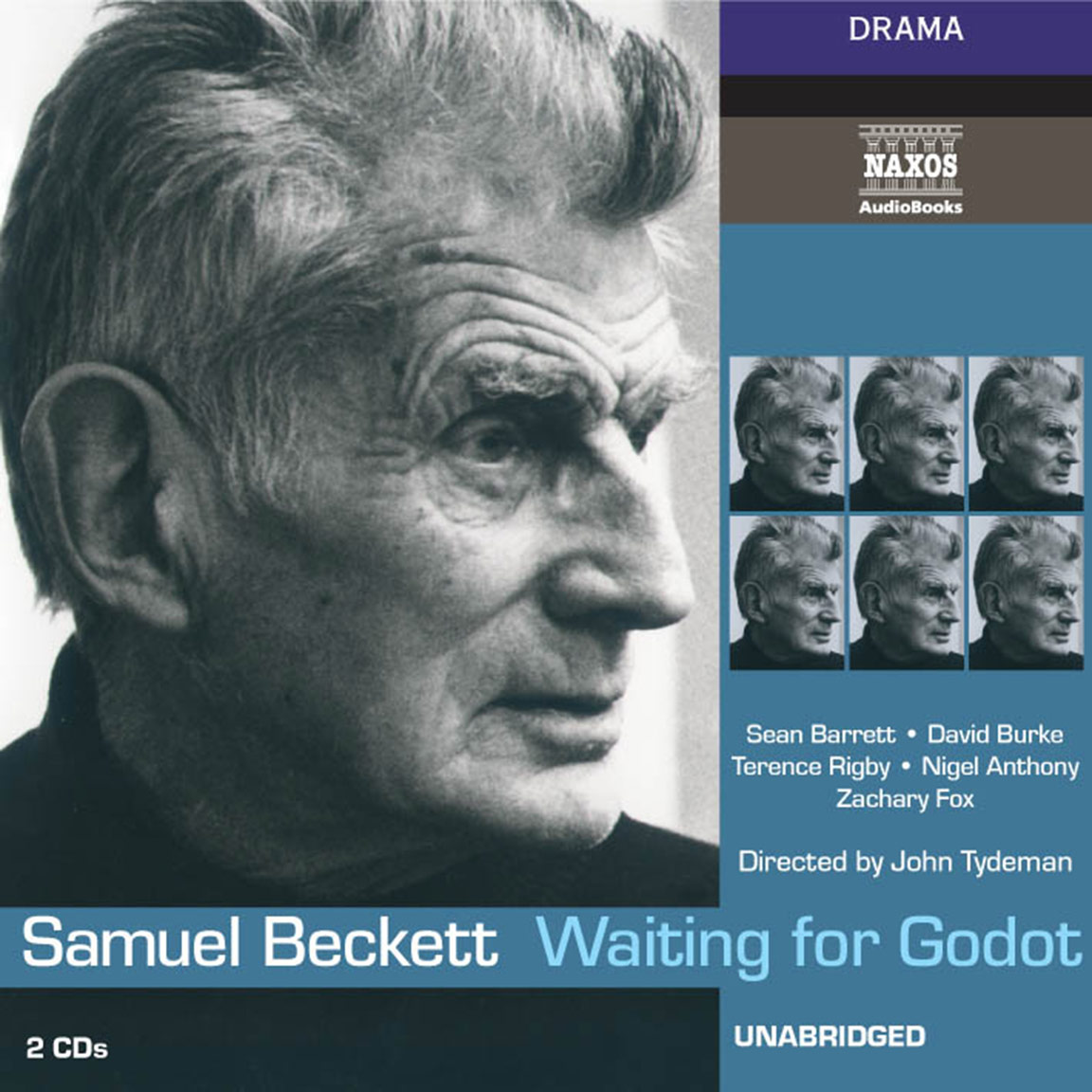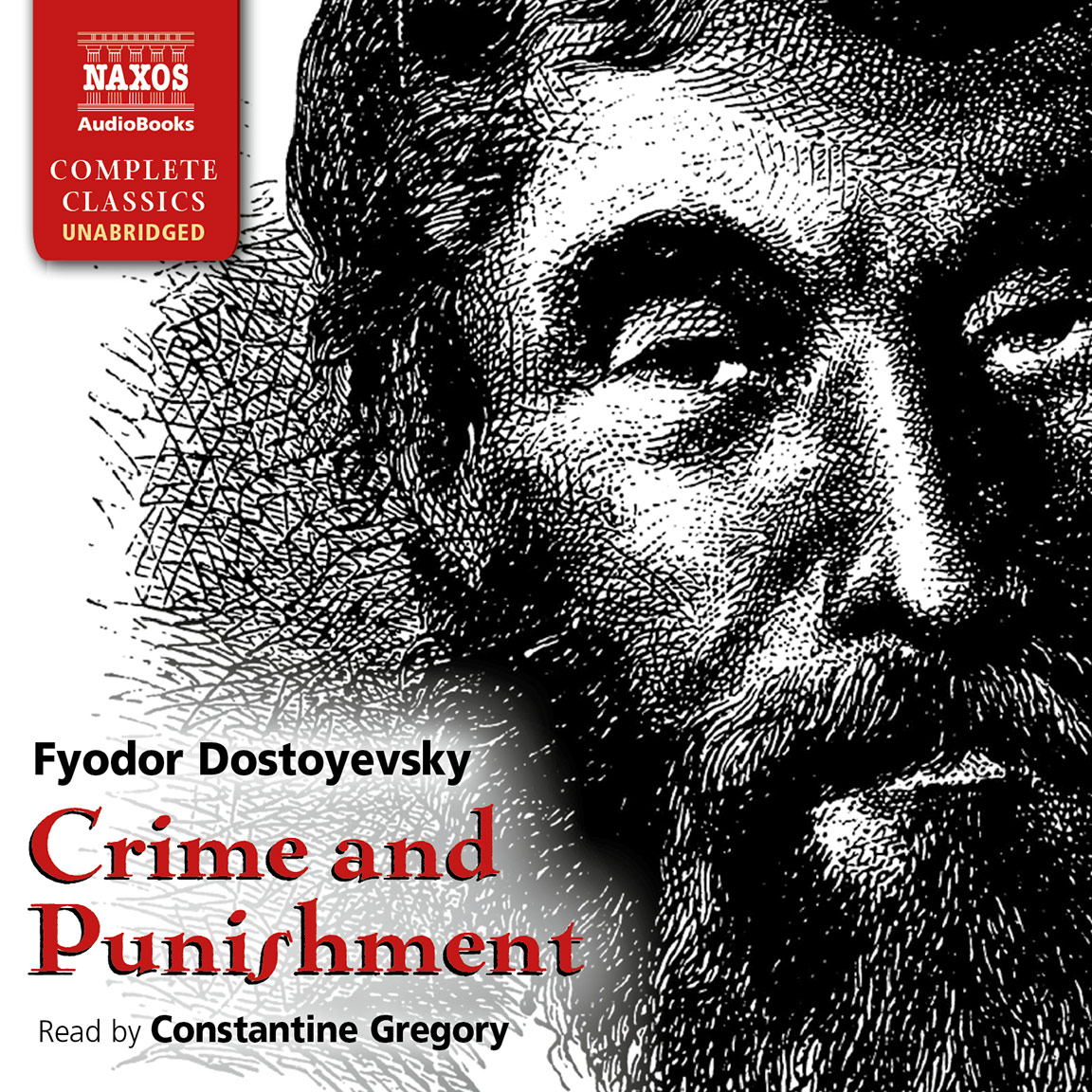
Audio Sample
Franz Kafka
The Trial
Read by Rupert Degas
unabridged
The Trial is one of the great works of the twentieth century: an extraordinary vision of one man put on trial by an anonymous authority on an unspecified charge. Josef K, 30, lives in a large town in an unspecified country. He is summonsed to answer a charge and appears in the court room for his trial. Franz Kafka evokes all the reality of trial without any of the specifics in a society that seems to have degraded into chaos: squalid environment, rats, yellow liquid shooting out of a hole in the wall. Guards, claustrophobia, anxiety – this is a gripping story and an allegory of modern life. This text remains just as relevant a century after it was written.
-
7 CDs
Running Time: 8 h 21 m
More product details
ISBN: 978-962-634-464-4 Digital ISBN: 978-962-954-599-4 Cat. no.: NA746412 Download size: 122 MB BISAC: FIC004000 Released: September 2007 -
Listen to this title at Audible.com↗Buy on CD at Downpour.com↗Listen to this title at the Naxos Spoken Word Library↗
Due to copyright, this title is not currently available in your region.
You May Also Enjoy
Reviews
On the morning of Josef K’s thirtieth birthday, two guards enter his rented apartment and tell him that he is under arrest. He is informed that he will be sent for trial, but in the meantime, he can carry on in his job at the bank. But what exactly is K’s crime? He is not a thief, yet he is evidently guilty of something, although no one seems to know quite what it is. This suffocating and surreal portrayal of bureaucracy saw Kafka challenge the modern world at the beginning of the twentieth century. This unabridged audio version offers a new translation by David Whiting, while Rupert Degas’s dry reading conveys the grotesqueness of man’s ability to place importance on the trivialities of life.
Kim Bunce, The Observer
Innocent man arrested, charged, detained, interrogated and ultimately sentenced for unspecified crimes against the state – the theme of Kafka’s sinister classic about the powerlessness of the individual is as relevant now, more so possibly, as it was when he wrote it nearly 100 years ago. When the next film of The Trial comes out (and there’s bound to be one hoping to outshine the Orson Welles and Harold Pinter versions), it will probably be called The Rendition of Joseph K. ‘Someone must have been spreading stories about Joseph K,’ goes the first sentence, ‘because, one morning, although he had done nothing wrong, he was arrested.’ This curious mixture of low-key and explosive is Kafka’s trademark. Remember ‘Metamorphosis’, where the young man wakes up to discover, more to his annoyance than anything else, that he has turned into a beetle? Thirty-one-year-old Joseph K seems more concerned that his arrest will make him late for work – to start with, at least. But, as the plot thickens to the same obfuscating density as the fog in Bleak House, and more and more demands are made on him to appear before mysterious officials who might have wandered in from Nineteen Eighty-Four or Alice in Wonderland, the tension and terror mount. Surreal, banal, sexy, funny, terrifying – it’s all of these and more, and the end, inevitably, is ghastly. This new translation by David Whiting, commissioned exclusively for audio, aims to make the text more immediately intelligible to the listener, which basically means cutting out some of the repetition and substituting proper names for pronouns so that you know who is talking. The unrelenting nightmare terror remains intact, reinforced by Rupert Degas’s extraordinary reading, best described as controlled teetering on insane. A truly stunning performance.
Sue Arnold, The Guardian
In Kafka’s iconic novel, bank functionary Josef K., arrested on unspecified charges, is swallowed up by a bizarre legal system with incomprehensible motives and purposes – a mix of Carrollian absurdity, Eastern European oppression, and nightmare. Rupert Degas’s voice acting is understated and telling. His tones are varied and expressive, but appropriately grayed or minor keyed, giving the impression of an intimate, dreamlike, and vaguely threatening whisper. The reading is very British – with names pronounced as German (with an excellent accent), including K. pronounced as ’KAH’. That choice, whilst linguistically correct, may result in listeners missing the significance of Kafka’s choice of the initial ’K’ as displayed in text. Still, the fine blend of performance and text is a menacing, seductive cocktail.
W.M., AudioFile
Booklet Notes
‘A shilling life will give you all the facts,’ most of them less outwardly striking than those listed in Auden’s poem. Indeed, the life of Franz Kafka may seem a somewhat restricted one. Despite making various journeys, largely within northern Europe, he essentially lived all his life in Prague (a town he described as being a little mother with claws). He had a good command of Czech – the name ‘Kafka’, incidentally means ‘jackdaw’ – but as someone born into a German-speaking Jewish family he was to some extent cut off from the society around him. Though he was closely involved with one or two women, and engaged three times (twice to one Felice Bauer), he never married. He gained a doctorate in law, then was for fourteen years the employee of an insurance company specialising in claims for industrial accidents. The work left him little time for writing. In 1916, for example, he was in the habit, after office hours, of making the steep walk from his flat in the centre of Prague to his sister’s diminutive house in the Castle precincts; there he would write until the early hours of the morning, when he would return to his own lodgings. After repeated bouts of ill health, he died of tuberculosis in 1924, at the age of forty.
With his death much of his legacy as a writer was to have been effaced: he had instructed his friend and executor Max Brod to destroy unpublished manuscripts. Brod did not in fact do so, and Kafka’s reputation as a writer therefore rests not just on his letters and some short stories (the most famous of which, perhaps, is his ‘Metamorphosis’, in which the protagonist finds one morning that he has turned into a beetle) but also on three posthumously published novels: ‘America’, ‘The Trial’ and ‘The Castle’.
Kafka began writing ‘The Trial’ in 1914, at a time of considerable change in his personal life. In July he broke off his first engagement to Felice Bauer, which had been announced only six weeks before. At the outbreak of war Kafka’s eldest sister had moved into her parents’ home with her two children, and Kafka found himself obliged, for the first time, to move out. After what had been a break of eighteen months from his writing, he was keen to take it up again, feeling that this activity alone offered him a chance to give sense to what he described as his ‘regular, empty, insane life as a bachelor’.
Such a phrase suggests that ‘The Trial’ might be autobiographical in nature, and to some extent the novel does, like many of Kafka’s works, reflect certain external aspects of his own life: the protagonist, Josef K, who is thirty years old, lives in what is clearly a large town, in which trams run from one district to another, and the buildings are often tall and imposing; he works in a markedly hierarchical office, and has little time to pursue his own concerns (though he remains strikingly susceptible to various women he meets). When Kafka returned to his writing in 1914, however, such external factors seemed of less interest to him than his ‘dreamlike inner life’.
The physical world in the novel does indeed have a dream-like clarity, strong appeal being made to the senses. When K first appears before a court he finds the court room stuffy, hot and packed with people, many of them wearing long beards which are stiff and sparse; if one put one’s hand into these, we hear, ‘it was as if one were… developing claws’. Faces, hands, gestures, clothes – all are depicted in very sharp focus: at one point, for example, K, confronted by two double chins, imagines their owners scratching at the folds in their skin. Close attention is paid to apparently banal physical objects, such as notebooks or chairs. Buildings are vividly described, often in a way which suggests that they are structurally rather odd: a window looks out onto an air shaft and receives almost no light; a pane of glass has been put in crookedly above a door; the steps on a staircase are excessively high. We are shown various parts of the city too. Some are squalid, places where rats jump into a canal to avoid a yellow liquid shooting out of a hole in a wall, some cheerfully demotic, others, like the cathedral square, more sober. For the most part, though, this is a novel whose physical action takes place within four walls.
Such concentration on an enclosed world brings with it an important aspect of the book, perhaps reflective also of Kafka’s inner life: a sense of constriction. The court room, as mentioned, is packed, the painter’s studio tiny; the pulpit cramped. Characters are frequently obliged to stoop; K once or twice finds it difficult to breathe. Linked to this is the recurring image of K’s feeling physically dominated by others – by the guards, by the deputy director and the industrialist, and of course by his two companions at the end of the novel. This might well reflect Kafka’s impressions of his father, a domineering, at times unjust man who frightened him, whom he saw ‘shouting, swearing and raging’ in the shop he owned, a man who called his employees ‘paid enemies’ and who evidently said of a clerk of his suffering from lung disease, ‘Let him die, the sick dog’. The unease induced by such constriction is a theme which runs through the whole book.
The theme works on another level too, of course. Discussion of Kafka’s novels and stories as religious allegories is a notoriously difficult area, one to which it is certainly not possible to do justice in such an introduction. However, there are clearly aspects of ‘The Trial’ which may be interpreted in religious terms. K feels constrained not just physically, but also by the demands of an incomprehensibly vast structure, an all-powerful force: ‘everyone is part of the court,’ he is told. He may not understand the workings of the court, or the reasons for his trial, but he is engaged in a personal quest to do so, meeting all sorts of obstacles on the way.
Such obstacles remind us of an aspect of the book which is often overlooked (but which Kafka himself evidently appreciated): its humour. Certain passages are vividly exaggerated, perhaps echoing the performances, known to have made a significant impression on Kafka, given by a Yiddish theatre troupe which visited Prague in 1911. Similarly, some of the characters, like K’s impulsive uncle, or the lawyer who feigns illness to ward off visitors, are drawn in rather caricatural fashion. Misunderstanding and misinterpretation run through the novel. When K walks with the usher though the court buildings, for example, everyone stands up. K thinks they are standing up because they think he is a judge; only later does he learn that they were standing for the usher. Verbal communication can prove difficult too: on one or two occasions K finds himself confronted by arguments that are reminiscent of passages in ‘Alice in Wonderland’. However, humorous though all these elements are, they serve also to underline a serious point: K finds himself in an alarmingly odd situation, one which he finds hard to understand.
It may be appropriate at this point to say something about the translation. Those Prague contemporaries of Kafka’s who were writing in German often sought to compensate for their relative isolation from the mainstream of the language by expressing themselves in very florid fashion. Kafka’s reaction against this led him to write in what is generally held to be a very clear, natural style; it is also, no doubt, the reason why his language can be repetitive at times. I have generally attempted to reflect this feature (while remaining aware that the effect might sound odd) since such repetition, like the striking passive construction at the end of the first sentence in the novel, seems to me to be at the heart of the work: energetic though he often is, K is indeed repeatedly constricted by events. A further challenge for the translator arises from Kafka’s presenting K’s story in two ways: at times as subjective direct experience, at others as ‘objective’ narrative. The shifting which occurs between the two modes can make for difficulty, for example with the choice of adverbs; again, though, I have tried as far as possible to remain faithful to the original. Only on occasions have I consciously strayed slightly from the ideal of accuracy in order to make the text more immediately intelligible to a listener, for example by indicating which character is speaking. I hope that in doing so I have done no disservice to Kafka; I hope above all that the translation will prove a useful aid to understanding an author who has helped us see the inner life of our age.
David Whiting




